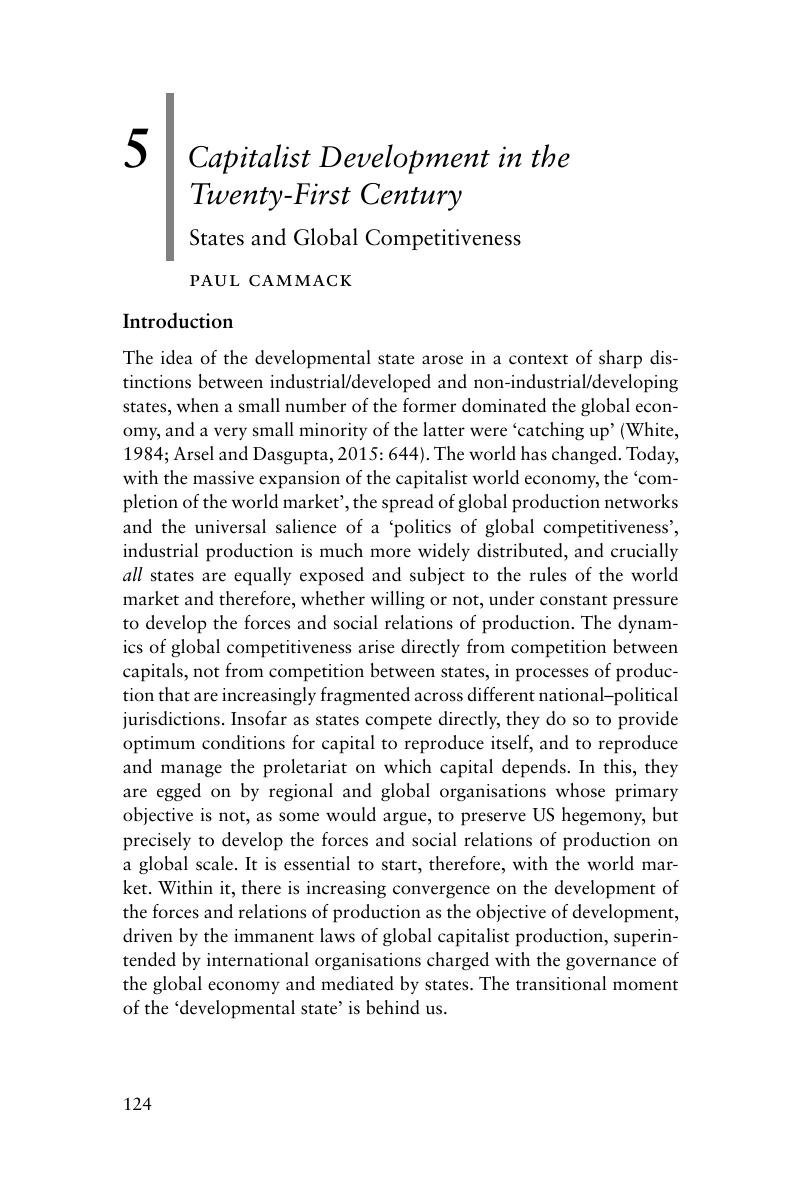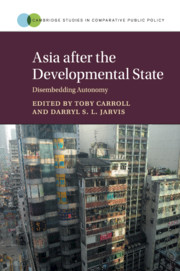Book contents
- Asia after the Developmental State
- Cambridge Studies in Comparative Public Policy
- Asia after the Developmental State
- Copyright page
- Dedication
- Contents
- Tables and Figures
- List of Contributors
- Preface
- Abbreviations
- Acknowledgements
- Introduction
- Part I Conceptualising State Transformation in Asia
- 2 The Origins of East Asia's Developmental States and the Pressures for Change*
- 3 Globalisation and Development
- 4 Late Capitalism and the Shift from the ‘Developmental State’ to the Variegated Market State
- 5 Capitalist Development in the Twenty-First Century
- 6 From Japan's ‘Prussian Path’ to China's ‘Singapore Model’
- 7 What does China's Rise Mean for the Developmental State Paradigm?
- Part II Cases of State Transformation in Contemporary Asia
- Index
- References
5 - Capitalist Development in the Twenty-First Century
States and Global Competitiveness
from Part I - Conceptualising State Transformation in Asia
Published online by Cambridge University Press: 06 October 2017
- Asia after the Developmental State
- Cambridge Studies in Comparative Public Policy
- Asia after the Developmental State
- Copyright page
- Dedication
- Contents
- Tables and Figures
- List of Contributors
- Preface
- Abbreviations
- Acknowledgements
- Introduction
- Part I Conceptualising State Transformation in Asia
- 2 The Origins of East Asia's Developmental States and the Pressures for Change*
- 3 Globalisation and Development
- 4 Late Capitalism and the Shift from the ‘Developmental State’ to the Variegated Market State
- 5 Capitalist Development in the Twenty-First Century
- 6 From Japan's ‘Prussian Path’ to China's ‘Singapore Model’
- 7 What does China's Rise Mean for the Developmental State Paradigm?
- Part II Cases of State Transformation in Contemporary Asia
- Index
- References
Summary

- Type
- Chapter
- Information
- Asia after the Developmental StateDisembedding Autonomy, pp. 124 - 147Publisher: Cambridge University PressPrint publication year: 2017

